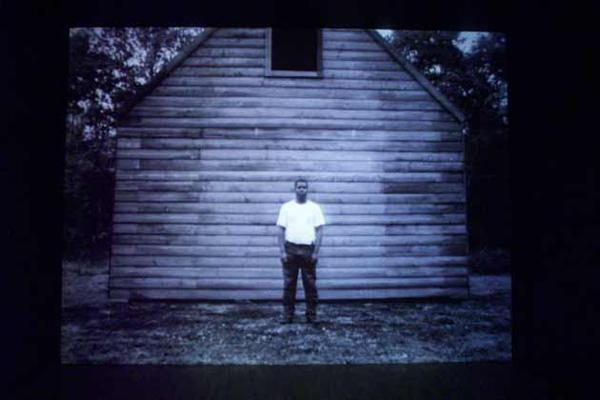In the lead up to the 30th Anniversary of the Turner Prize, presented at Tate Britain from 30th September to 4th January – with its long history, and many media controversies – we take a look at some of the winners of the prize of times past. Having previously looked back at the first winner, the now octogenarian artist Malcolm Morley; we turn our attentions to the 1999 winner, artist and prestigious Hollywood director Steve McQueen.
The Turner Prize; named after the painter J. M. W. Turner, is an annual prize presented to a British visual artist under the age of 50. Awarding the prize is organised by the Tate gallery and staged at Tate Britain. Since its beginnings in 1984 it has become the United Kingdom’s most publicised art award.
Then 30 years old the video artist beat the controversial Tracey Emin who displayed her unmade bed to win the prize; an addition to the exhibition that garnered more press than McQueen’s success. Yet the transformative video artist would see his work evolve into a more commercial fare; with successes in arthouse and successively mainstream film; beginning with the Bobby Sands drama’Hunger’2008, followed by the artist’s exploration of sexual addiction n ‘Shame’ 2011, and most recently McQueen’s ’12 Years a Slave’ 2013 for which he one an Oscar. In fact Steve McQueen is the only the artist and director to hold both an Oscar and the Turner Prize.
When London-born artist/film-maker Steve McQueen was in his early twenties, he made a short film called Bear (1993) in which two naked men (one of them played by McQueen himself) confronted each other as if about to fight.
“I didn’t have a lot of money and so I thought the [best] thing you could do was use yourself and a camera,” McQueen recalled recently of the work which first helped make his name in the international art world. “These two males, are they lovers? Is it some kind of courtship? Are they wrestling? What is this ambiguous relationship? That is what I was interested in.”
McQueen’s films as an artist were typically projected onto one or more walls of an enclosed space in the gallery space, and often in black-and-white and minimalistic in nature. The director has cited the influence of the nouvelle vague and the films of Andy Warhol, and often appeared in the films himself.
In 2006, The director went to Iraq as an official war artist. The following year McQueen presented ‘Queen and Country’, a piece that commemorated the deaths of British soldiers who had died in the Iraq War – by presenting their portraits as a sheet of stamps. His 2007 short film Gravesend depicted the process of Coltan refinement and production. It premiered at The Renaissance Society in the United States.
The artist’s 2008 feature film ‘Hunger’, depicted the 1981 Irish hunger strike, starring an emaciated Michael Fassbender as Bobby Sands; premiered at the 2008 Cannes Film Festival. McQueen received the Caméra d’Or (first-time director) Award at Cannes, the first British director to win the award. The film was also awarded the inaugural Sydney Film Festival Prize, for “its controlled clarity of vision, its extraordinary detail and bravery, the dedication of its cast and the power and resonance of its humanity”, a reflection of the director’s roots as a contemporary artist.
McQueen’s ‘Hunger’ also won the 2008 Diesel Discovery Award at the Toronto International Film Festival. The award is voted on by the press attending the festival. Hunger also won the Los Angeles Film Critics Association award for a New Generation film in 2008 and the best film prize at the London Evening Standard Film Awards in 2009.
The director also returned to contemporary art in 2009 when he represented Britain at the 53rd Venice Biennale. For his exhibition in the British Pavilion, McQueen presented a new film entitled ‘Giardini’, inspired by the area of Venice where the Pavilion is situated. The artist returned to the Biennale in 2013.
McQueen reflected on his journey; and the relationship between his work as an artist, and his evolution as a director saying: “Art can’t fix anything. It can just observe and portray. What’s important is that it becomes an object, a thing you can see and talk about and refer to. A film is an object around which you can have a
debate, more so than the incident itself. It’s someone’s view of an incident, an advanced starting point”.
The director and artist was appointed Officer of the Order of the British Empire (OBE) in 2002,and was created Commander of the Order of the British Empire (CBE) in the 2011 New Year Honours for services to the visual arts.
Turner Prize 2014 Tate Britain 30 September 4 January

